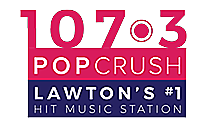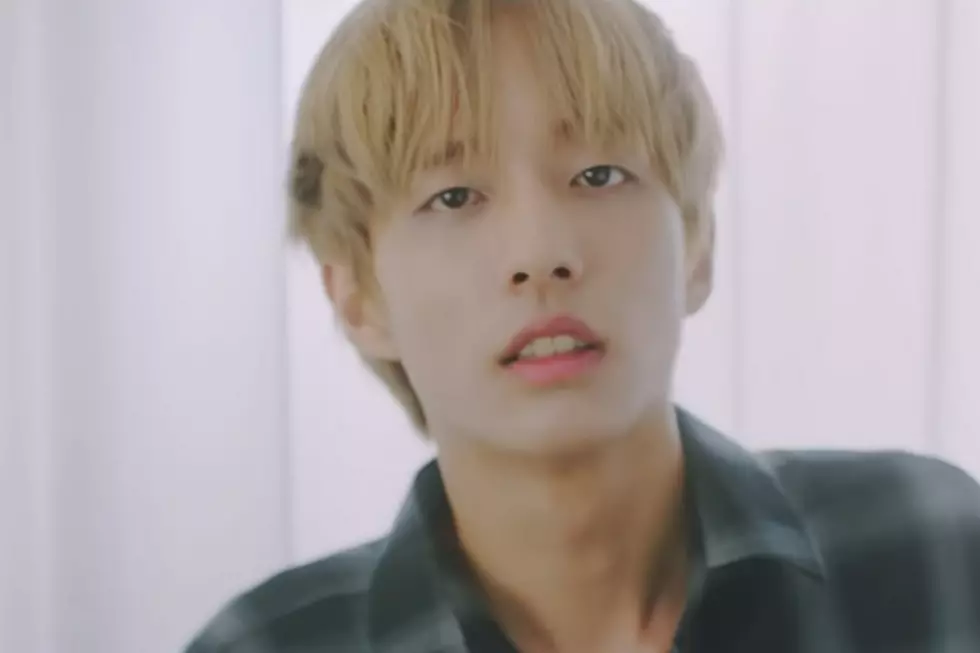
Holland Is Paving His Own Path in K-Pop
On a dreary Monday morning in Los Angeles in August, a dense, thick fog is rolling its way across the city, cresting over skyscrapers and transforming the glitz and glamor of the “city of stars” into a cold, gray metropolis. I’m standing in the hallway on the 57th floor of a luxurious hotel when suddenly a door flies open and out pops 23-year-old K-pop artist Holland, with his sparkling silver hair and a cheerful smile.
“Hi, baby!” he shouts excitedly, pulling me into a big bear hug. Suddenly, the day doesn’t seem too gloomy after all.
Holland, real name Go Taeseob, is a revolutionary South Korean artist whose music bridges the worlds of artistry and activism. In 2018, he became the first openly gay K-pop idol in history with the release of his self-funded single “Neverland,” a slow-grooving pop tune depicting his teenage wish for “a special place where I could go and do what I loved the most” away from the judging eyes of the world, not unlike the eponymous magical land from J.M. Barrie’s Peter Pan.
The music video for “Neverland” soared to over a million views in its first 24 horus, but was rated 19+ in South Korea for its scene depicting Holland kissing another man. Within his music videos, Holland is careful of how he portrays the LGBTQ+ community in South Korea, often choosing to showcase “the pretty side.” (He cites films like Carol and La La Land as inspiration.) In conjunction with his visuals, Holland uses his music as a platform to change the perceptions of others in South Korea, where same-sex unions are not recognized, sexuality education is not taught in schools and discrimination is prevalent despite President Moon Jaein’s denouncement in October.
“I’m still in the process of trying to work harder to express and show ... what I want to show the LGBT community. I believe that if I keep working hard on it and repeat what I’m doing right now, I will eventually achieve that goal of showing a different side of the LGBT community to the public,” Holland says. “Because the whole LGBT community within Korea is still visualized as a very small community, I want to change how people look and talk about us. I want to show them that the community can be very cool, strong people, too.”
Holland is a very cool, strong person. Growing up as a teenager in South Korea, Holland was bullied for being gay. He longed for an idol that he could look up to in the public sphere. Now, he’s become the idol he wished he had growing up; a role model for fans around the world who inspires, empathizes and offers lots of love, hugs and advice both in person and online.
That love is reciprocated just as fiercely and passionately by Holland’s fans, called Harling: a portmanteau of the words “Holland” and “Darling,” the surname of the family from Peter Pan. In 2018, Harling raised over $100,000 to fund the release of Holland’s first self-titled mini-album, and now they’re helping decide where Holland will visit on his first world tour, EP.1 Invitation to Neverland. The European leg of the tour will begin in December, visiting Germany, Spain, the Netherlands, France and London over the course of ten days.
To Holland, the reaction he’s received from fans all over the world is unimaginable. “I’m very thankful for everything that’s happened to me so far. Every time the fans tell me that I’m a source of comfort for them, I always think to myself that I have to work harder and harder for them. I always wished that my music and my message would influence these fans and give them inspiration.”
He’s also fascinated by what Harling are interested in musically, and often asks for their opinion via social media so that he can incorporate their ideas into his music. “Harling is like 90% of the artistic decision-making and my ideas are 10%,” he shares. “I try to add both my ideas and the fans’ ideas together.”
As a songwriter, Holland is inspired by events that have defined his life. “Stories of the past,” he reflects. “‘Neverland’ is a song where I wanted to show to the people who gave me a hard time when I was younger who I am now. No matter what kind of position I’m in or how I look, I want to show people that I am enough and that I am a good person, deserving of love from others.”
Where “Neverland” is filled with teenage escapism and a search for validation, Holland’s follow up releases reveal Holland’s growth both as an artist and an individual. Twin singles “I’m Not Afraid” and “I’m So Afraid” depict both Holland’s trepidation leading up to his debut as well ashis pride and confidence after coming out as an openly gay K-pop idol. On his most recent single, the synth-infused club hit “Nar_C,” Holland lets go of his need for a “wonderland” to hide away from the world, instead choosing to be present and fight for what he believes in.
“When I was writing ‘Neverland,’ I always wanted to get away from all the problems and the issues around me,” Holland reflects, thoughtfully gazing up at the ceiling. “Now, with ‘Nar_C,’ I want to shout out my message to the community rather than [run] away. I want to stand my ground, which is why I said I didn’t want to return to wonderland. In the one year that I’ve been active so far, my perspective has really changed.”
Now, Holland’s top priority is sharing his message through his music. “Right now, I’m trying to focus on my own music and art so that I can be more influential in the future. I’m trying to find a variety of ways that I can support the community as much as possible,” he says. “Until now, I’ve told stories of my lifestyle in the past form. From now on, I want to discuss more diverse topics going around in the world...”
Holland is also passionate about encouraging other artists of all sexual orientations to follow in his footsteps: “I definitely think there should be other artists that do what I did, so I’m trying to gain as much experience as possible to pass it on.”




